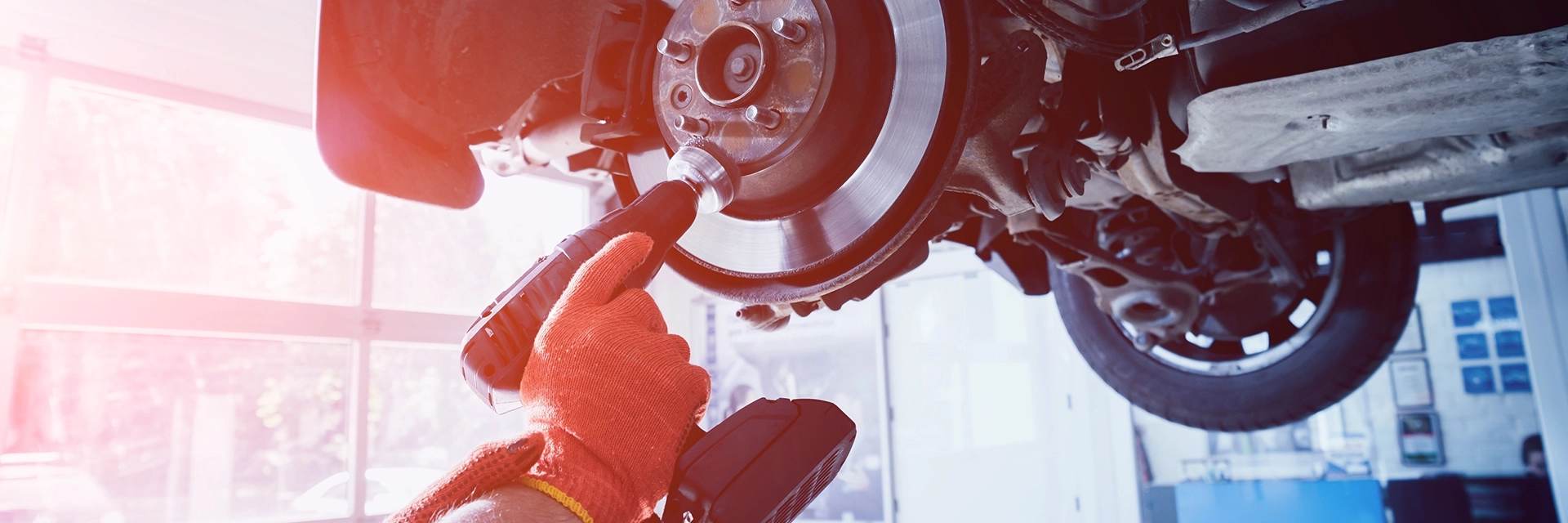Common Brake Noises and What Causes Them
Hearing any kind of odd noise coming from your car should be a cause for concern. Your brakes, specifically, need to be examined as soon as possible if you notice a strange sound. When your brakes are making noise, that means any number of issues could be present, and you want to ensure your safety by getting them inspected right away. Here are some of the common noises brakes can make and what could be causing them.
Squealing/Squeaking
A squealing or squeaking noise when you apply your brakes is one of the most common sounds heard. But just because it’s common doesn’t mean you should keep driving with them like that. Squealing and squeaking can be signs of a larger problem that could put you and your vehicle at risk. Common causes of squealing or squeaking include:
Worn Brake Pads – Your brake pads are an important part of your braking system that helps slow your vehicle down. But all of that friction can cause the pads to wear away. Each pad has a brake wear indicator or built-in warning system that will rub against the brake discs once your pads are worn out. This squealing noise indicates that it’s time to get your brake pads inspected to ensure they are working properly.
Dirty Brakes – A worn brake pad isn’t all that can make that squealing sound. Even if your brake pads are still operable, a squealing can still be heard if brake dust happens to get trapped between the pads and the discs. While this itself isn’t an immediate cause of danger, the brake dust can erode your brake pads and discs, leading to further damage, and should be cleaned out as soon as possible.
Lack of Lubrication – Your brakes require proper lubrication to ensure that the friction needed to slow your car down is only in the right places. When your brake parts lose their lubrication (or if your brake fluid becomes contaminated), you may hear a squeaking noise as parts rub against each other. Proper lubrication helps prevent further brake damage.
Grinding
You’re likely to feel the grinding in your brakes as much as you’ll hear it. Brake grinding is a grating noise that makes it clear your brakes need inspection and repair. Common causes of grinding brakes include:
Sticky Caliper – If you have a sticky caliper (the housing unit for your vehicle’s brake pads and pistons), your brake pads can be continuously compressed against their disc rotors. This constant contact is likely to cause a grinding noise when you apply the brakes, as the parts are forced even further together, creating heavy friction.
Stuck Wheel Cylinder – Similar to a sticky caliper, if one of your wheel cylinders (a component of a hydraulic drum brake system that exerts friction) gets stuck, it constantly jams the brakes, causing a grinding noise and jittery feeling. An inspection of your brake system can help locate the stuck cylinder and help get your system running right again.
Rattling
A rattling, clattering, or even vibration sound coming from your brakes can indicate some serious issues. Getting your brakes inspected when they start making these noises is critical in maintaining your safety. Common causes of rattling noises include:
Warped Rotor – when your brake rotors get warped, you can end up with an uneven contact surface with the brake pad. This can cause a rattling noise as well as a pulsating pressure on the pedal or vibration in your steering wheel.
Missing Hardware – Your brake system is made up of many parts, and it’s important that all of them are installed and properly adjusted. If you’re missing a part of your brake system, or it wasn’t installed and adjusted correctly, this can cause a rattling noise as your system becomes loose.
Brakes Making Noise? Visit a Bosch Auto Service
If your brakes are making noises, you need to have them inspected and possibly repaired or replaced. You can get a full brake inspection at your local Bosch Auto Service to see if a repair or replacement is necessary. Locate a Bosch Auto Service near you today to get assistance with your brakes and ensure your safety.


